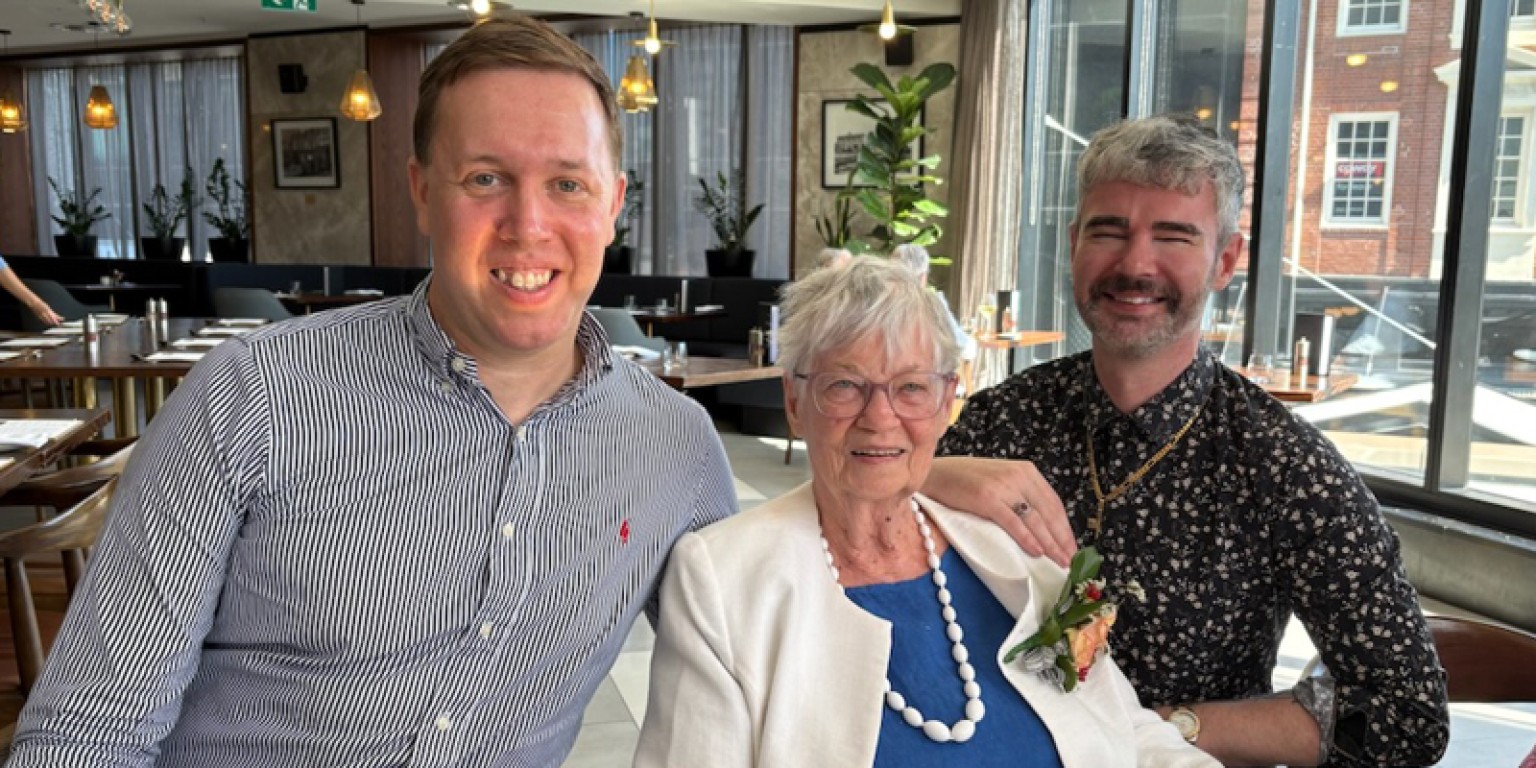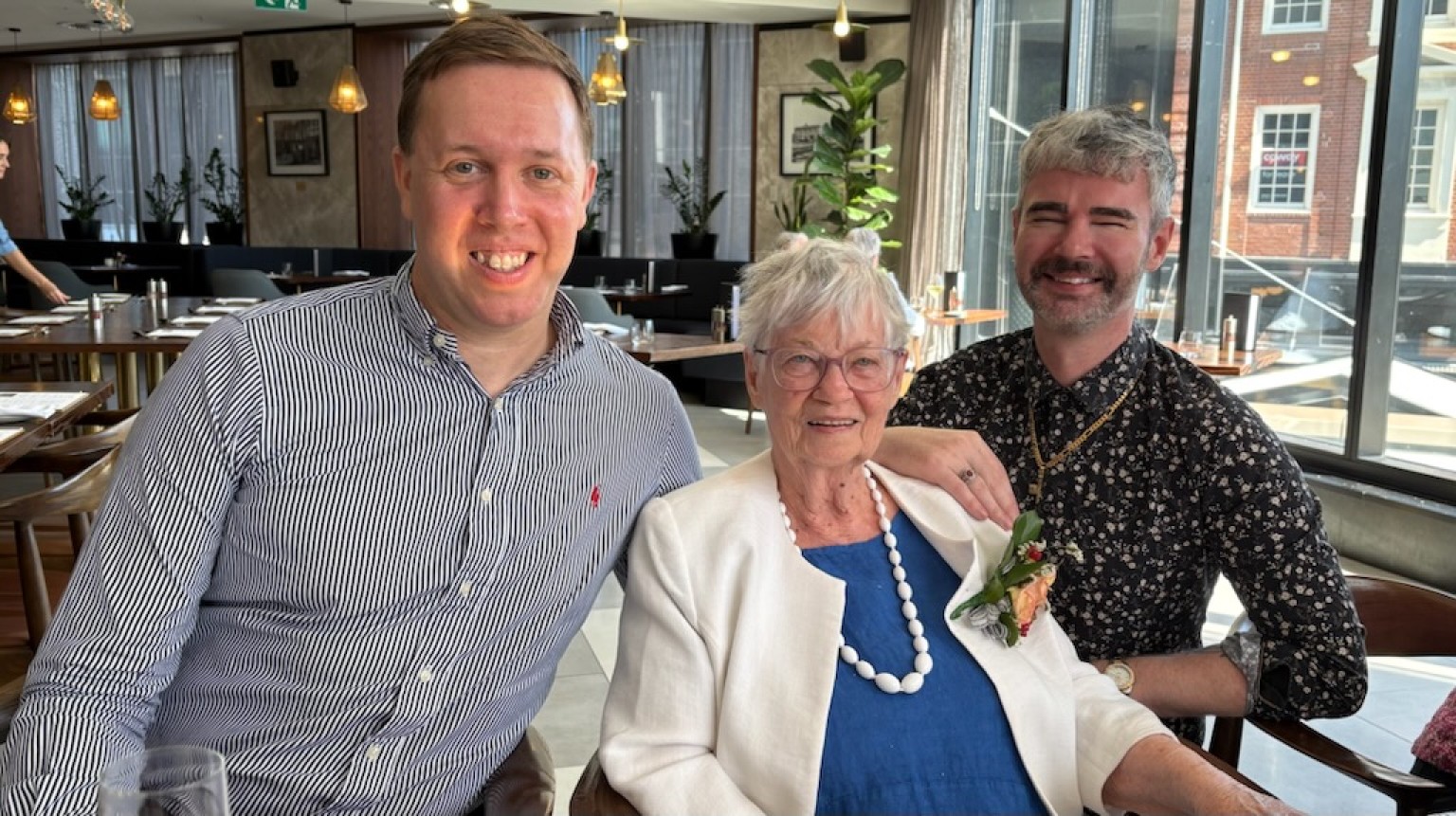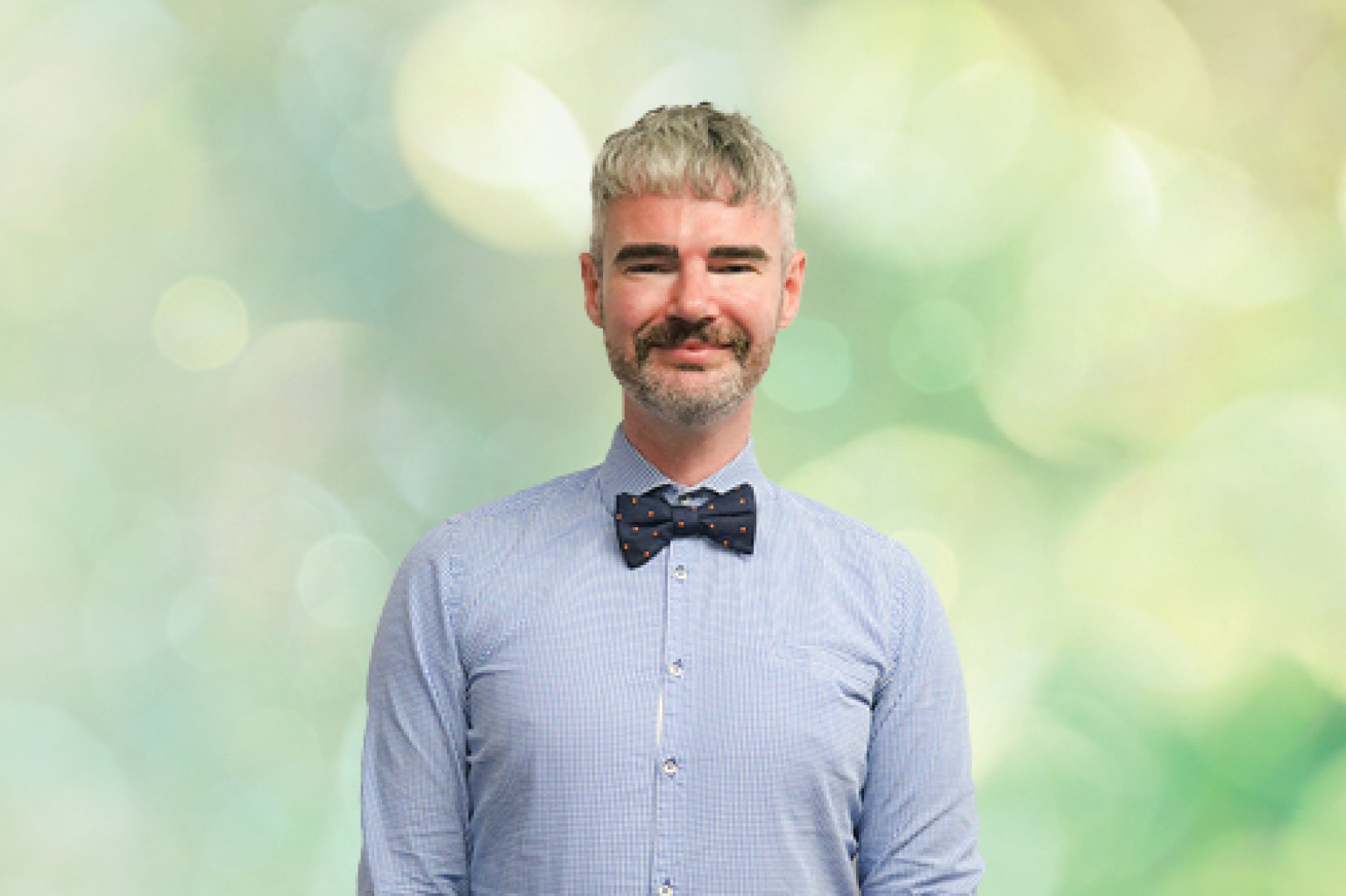Grandmates: what living with his 90-year old nana has taught Scott Marlow
Create a will and EPAs online
Scott Marlow is in his thirties, his grandmother June Hair is in her nineties – and they live together in Christchurch. Being a caregiver to an older family member injects a healthy dose of perspective into daily life, says Scott, and informs his work as Public Trust’s Head of Service Delivery in the South Island.

Scott says he feels lucky to share his home with his nana. “It has taught me to slow down,” he says.
“She is ninety this year and while ‘sprightly’, she is indeed ninety. I am reminded in conversations with her that life isn’t really about reports and spreadsheets. It’s about stopping to smell the roses, slowing down and above all being grateful for the finite time we have.”
While the role of caregiving presents opportunities to connect and provide love with older generations, Scott says it isn’t without its challenges.
Part of this is letting go of ‘what was’, and focusing on ‘what is’. “We take small steps and adjust as needed. We recognise that what was yesterday probably won’t still be tomorrow.”
He draws on these experiences in his professional life. “Applying empathy to individuals and their circumstances is a critical life practice that I am reminded of daily with Nana.”

Supporting decision-making
Scott says his family is focused on ensuring June has a voice in the decisions that affect her.
“It is fundamental to remember that it is her life, her body and her mana – we are here to care for her, however she has sovereignty over herself.”
“Nana has many needs. It is easy to get focused on the physical and while important, emotional and spiritual needs are equally essential. Planning, planning and more planning is the answer.”
Approaching estate planning with older family members
Family situations like Scott’s reflect wider shifts in society. A greater proportion of New Zealanders than ever before are older. We’re also seeing more generations under one roof – at last Census there were 127,947 extended families living together in a household, an increase of 27 percent on 2013.
New Zealand’s ageing population has put the spotlight on age-related conditions like dementia, which has consequences for families approaching estate planning.
The law requires that people have “testamentary capacity” to make a legally valid will.
“This is really important. Testamentary capacity in effect means you understand what a will is and what its consequences are, know what assets and liabilities you have, know the names of your close family members who may have a right to benefit from your estate, and that you are free from any "disorder of the mind" that might distort how you choose the contents of your will. Being a legal document – the threshold is quite high.”
Says Scott: “The best way to address this is to visit your doctor and ask for a medical certificate confirming your testamentary capacity. There are different tests for capacity, depending on what a person is wanting to do. While this might sound a bit silly to you, it can save a lot of time and cost at the other end.”
When it comes to making a will, he encourages people to keep things as simple as possible. “This is for two reasons. One: a simple and clear will can make it easier to administer. This means less time taken to carry out your wishes. Two: clear instructions mean that there is reduced likelihood of conflict, cost and expense to the estate and those around you.”
More talk needed
“By having an upfront conversation and putting a plan in place, people tell us they feel more in control.” says Scott. “End of life planning provides peace of mind for you and your loved ones, so you can get on with living your life.”
Public Trust’s research has found a big reason why many New Zealanders put off getting a will is they find the process emotionally hard. While this is a normal human response, not being prepared can lead to significant issues down the line.
We need to face up to the reluctance to talk about, or prepare for, the implications of getting older, he says.
“Not talking about it won’t make it go away, unfortunately. These conversations by nature are heavy. However, there is real power in facing into these realities and sharing how we envisage our final chapter and epilogue – the legacy we leave.”